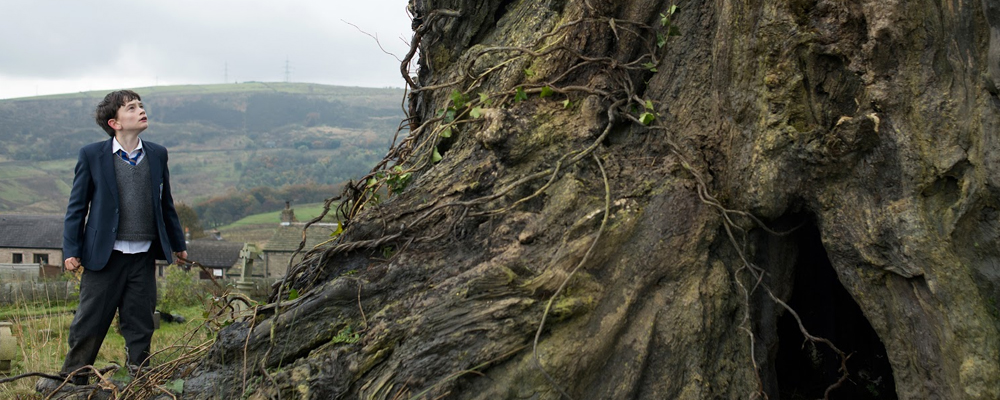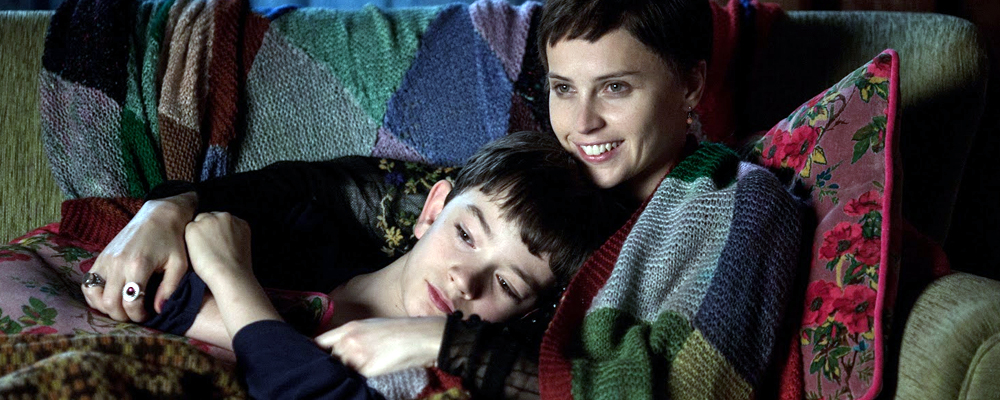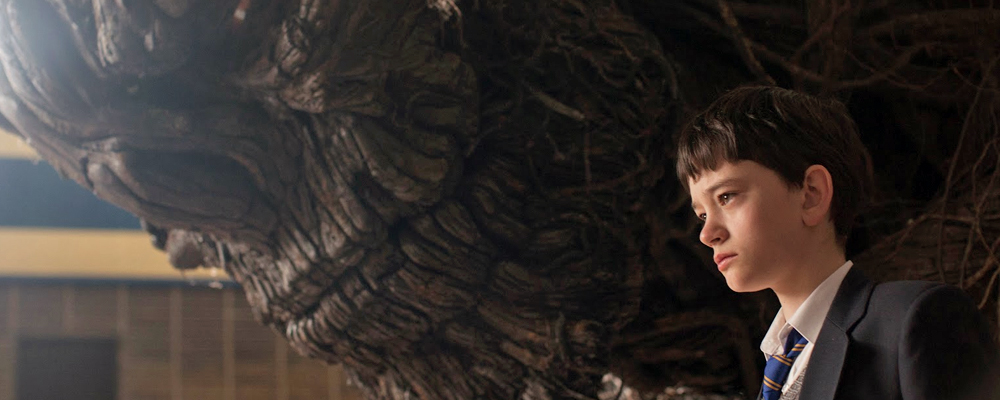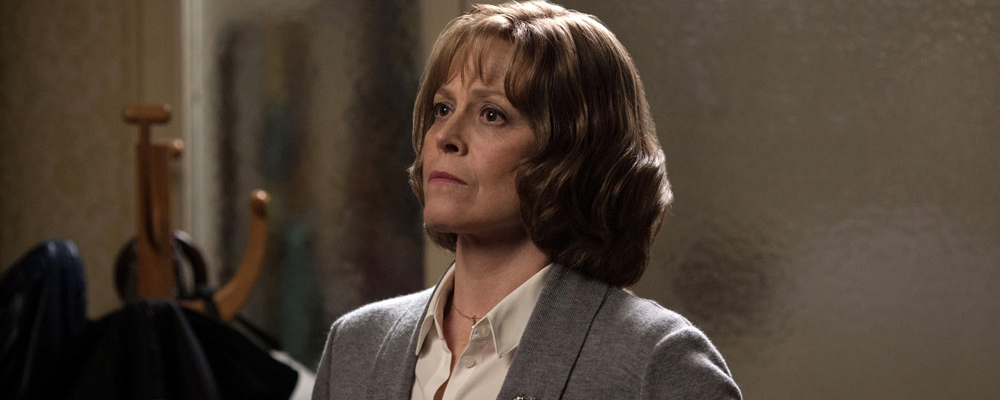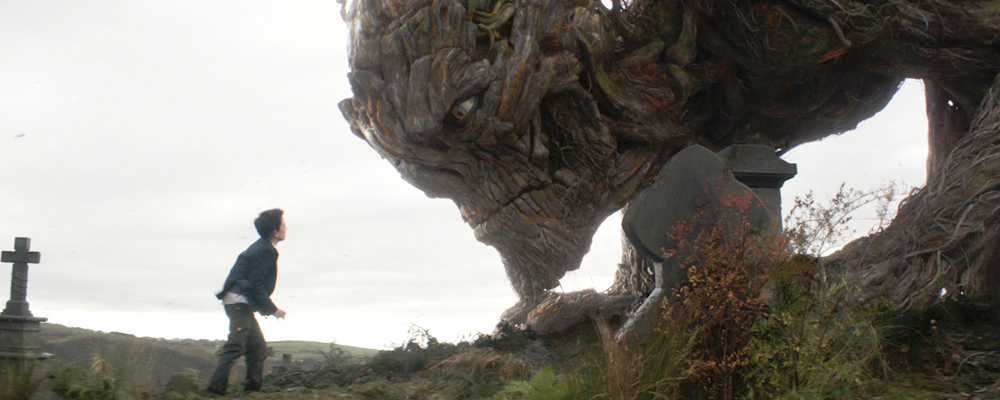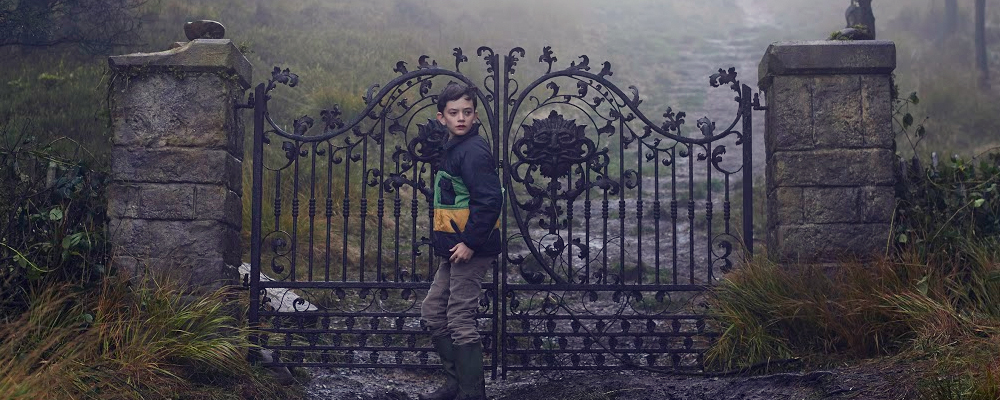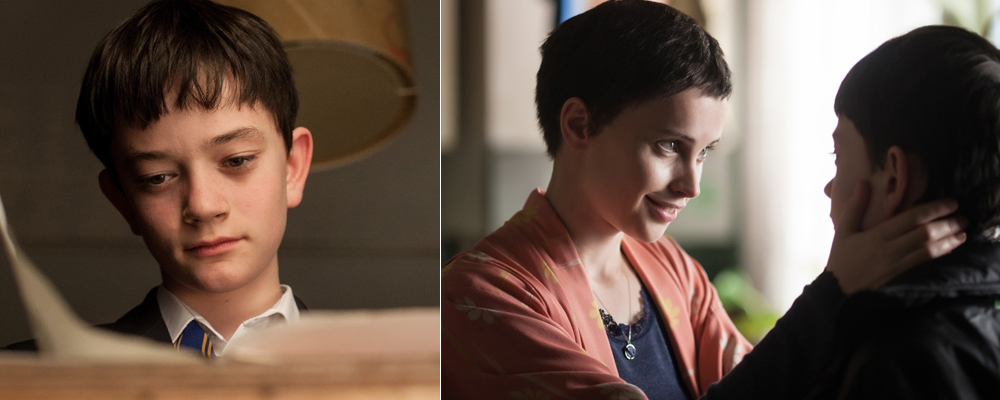‘A Monster Calls’ Is a Staggering, Mythical Examination of Grief
Allyson Gronowitz
“A Monster Calls” is a visually stunning meditation on life, death and the grief that haunts the space between them. Children’s author Patrick Ness adapts his all-too-real novel to the screen, aided by the Spanish director J. A. Bayona and performances by a host of Oscar nominees – not to mention a breakout role from 12-year-old Lewis MacDougall.
Conor O’Malley (MacDougall) has a recurring nightmare: he is crouched in the church-side cemetery near his house, clutching his mother’s hand as she is sucked into a gaping chasm in the earth. He loses his grip, and, terrified, he wakes up sobbing. Though it’s just a dream, it has an underlying significance that relates to his reality – his mother Lizzie (Felicity Jones, delivering an astonishingly tender performance) is dying of cancer, and Conor is struggling to come to terms with her condition.
“A Monster Calls” begins with Conor occupying the space of his new normal, making his own breakfast and doing his own laundry. In school, he stares blankly into nothingness or doodles on his textbook, and the camera remains fixed on him as a teacher fumblingly expresses sympathy. After school, Conor is mercilessly bullied, and he butts heads with his strict, emotionally restrained grandmother (Sigourney Weaver). But with his mother, he feels safe, and the two enjoy a cozy evening watching “King Kong” after Lizzie uncovers an old projector.
Conor is about to encounter a monster of his own: a 40-foot tall yew tree with glowing orange eyes and the commanding voice of Liam Neeson. The gnarled colossus looks and acts like something out of a Guillermo del Toro film, and the thematic and visual similarities to del Toro’s darkly fantastical “Pan’s Labyrinth” are certainly not coincidental – multiple Academy Award winners for “Pan’s Labyrinth,” including make-up effects creators Montse Ribé and David Martí and production designer Eugenio Caballero, were involved in bringing Neeson’s motion capture performance to life.
The Monster informs Conor that he will tell Conor three stories during three visits, and then he will hear one from Conor – “and it will be the truth.” A distraught Conor scoffs at the importance of fables, but the Monster, who declares that he’s not here to slay Conor’s dragons for him, presses on, offering complex, morally gray tales that render Conor even more frustrated. (Neeson’s rumbling voice adds weight to every word.)
The Monster’s story sequences are rendered in striking watercolor animation, and Fernando Velázquez’s lilting soundtrack carries the emotion without forcing it. Bayona, whose previous film, “The Impossible,” also dealt with emotionally wrenching tragedy, directs with close-ups that prize heart and hope.
But the true spirit of “A Monster Calls” comes from MacDougall (Conor), who delivers an Oscar-worthy performance in only his second feature film. (Credit of course belongs in part to Bayona, who also coaxed a breakout role performance from future Spider-Man Tom Holland in “The Impossible.”) The film takes place through Conor’s eyes, and MacDougall commands each and every scene accordingly. His moments with his mother are especially resonant; he hugs her as though afraid she’ll disappear at any moment but can also evoke his interior life with only a glance. In the Monster’s words, Conor is a boy “too old to be a kid, too young to be a man,” and MacDougall handles that dilemma line with depth.
Though it is the Monster who prods Conor along his path, Conor’s estranged father (Toby Kebbell) lends his own wisdom to Conor’s journey. Without delving into melodrama, the two discuss Conor’s father’s separation from his mother, and Conor sadly notes that his parents didn’t get a “happily ever after.” His father smiles gently. “Most of us get ‘messily ever after,’” he responds. “And that’s all right.” In “A Monster Calls,” that all right becomes transcendent.
“A Monster Calls” opens in limited release on Dec. 23 and in theaters nationwide on Jan. 6.

